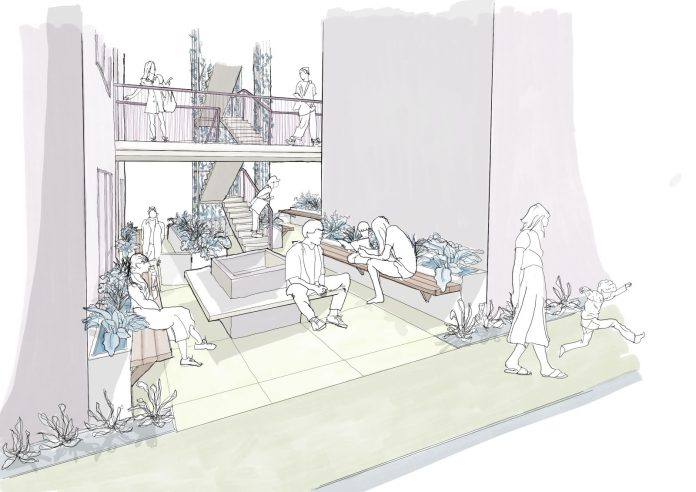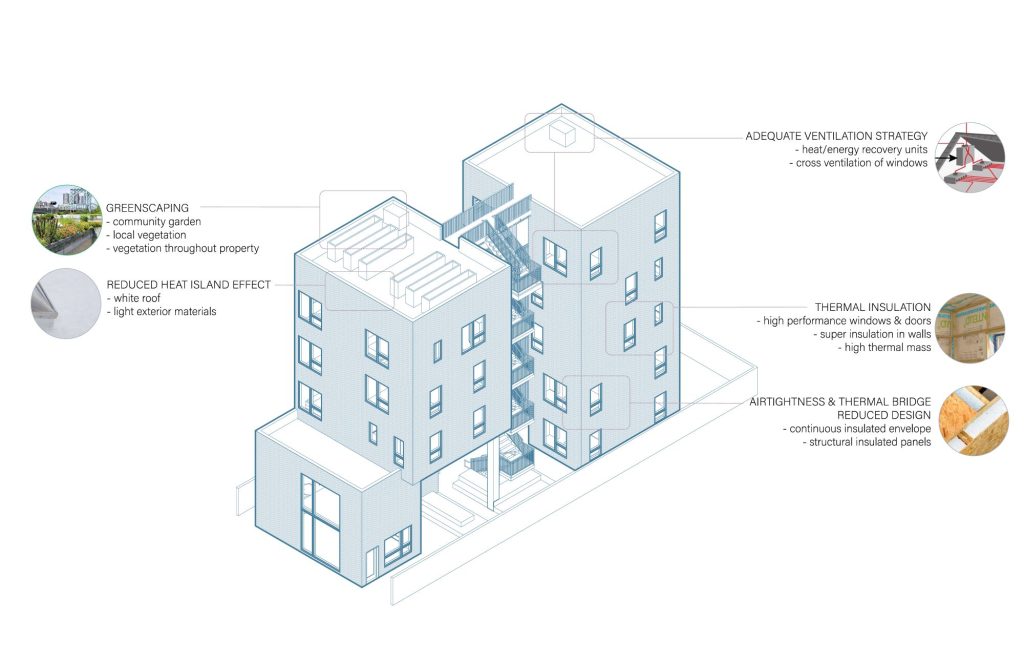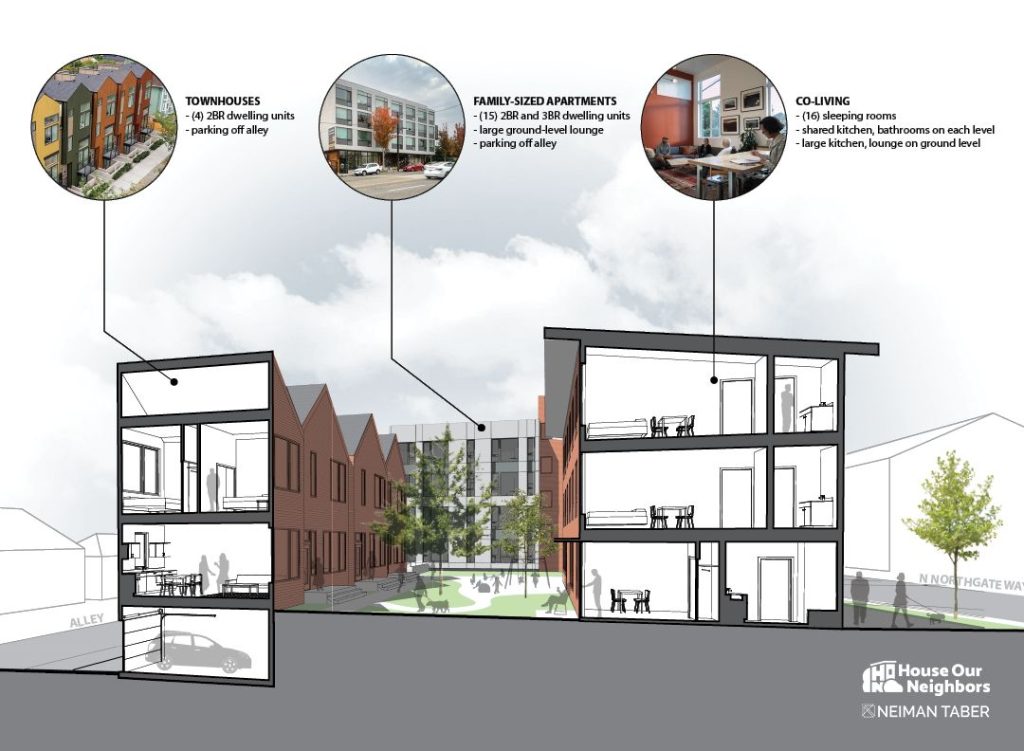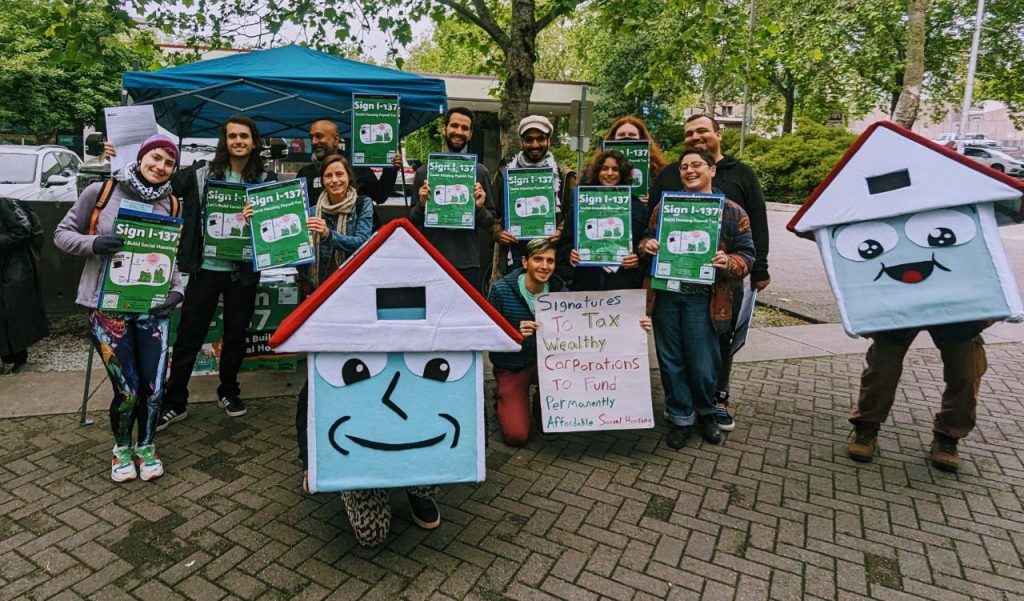
Seattle voters approved the formation of the Seattle Social Housing Developer in 2023, with the promise to fund it at a later date. Due to Washington state’s single-subject rule, one ballot measure could not establish the public development authority and fund it at the same time. But the 14-point win suggests voters intended to do so.
Now, the city has a special election on deck next February with dueling ballot measures to fund that public developer. House Our Neighbors put forward the grassroots Initiative 137 that will be on the February 11 ballot as Proposition 1A, while the centrist majority on Seattle City Council proposed a conservative alternative 1B that isn’t really social housing.
On their ballots, voters will be asked whether they want to fund social housing at all, and if yes, they’ll have to choose between one of the two options. Seattleites should vote yes on the opening question, and also vote for Prop 1A as the specific solution. Here’s why.
Seattle’s housing crisis is daunting, and it warrants both additional resources and thoughtful experimentation with new models of providing that housing. Prop 1A does just that by adding a new tax on the megarich to fund its mixed-income housing creation model.
The excess compensation tax would only hit companies who compensate individual employees above $1 million and would generate roughly $53 million per year by taxing the wealthiest businesses who operate in Seattle. That’s enough dedicated revenue to get land acquisition and social housing construction started.
The Seattle Social Housing Developer would complement the great work that nonprofit builders and public housing authorities currently do. While nonprofits and public housing authorities typically provide housing reserved exclusively for low-income residents, the Seattle Social Housing Developer seeks to provide housing across a mix of income ranges, including middle-income, family-sized housing up to 120% of area median income.
Social housing could help close the gap between income-restricted nonprofit housing and market-rate housing that is too expensive for many. Middle class households — teachers, cooks, paramedics, artists, etc. — should be able to afford to live in Seattle. Social housing can help make this happen.
By and large, social housing wouldn’t be competing for the same pot of outside funding since most federal and state funding sources are for 100% low income housing, not mixed-income.
Some housing professionals have criticized the Seattle Social Housing Developer and have sought to brand it as a pipe dream, with funding better spent on traditional nonprofit-led affordable housing development. We appreciate their warning of the challenges inherent in building below market housing and managing rental properties over the long-term. Several housing nonprofits are in financial distress right now due to shrinking rent revenue and rising costs during the pandemic. Nothing about provisioning housing is easy. But that doesn’t mean we should stop innovating or exploring new options.
The social housing developer must strive to be thorough and fastidious to ensure the dream gets off the ground. We appreciate the values that House Our Neighbors has put front and center, but we also want the dollars and cents to add up so that the developer can successfully launch its first batch of projects and continue expanding its portfolio and serving more residents.

House Our Neighbors has shared preliminary social housing designs that hint at what is possible when we encourage architects to innovate. The renderings suggest high-quality green buildings designed to foster strong cross-class communities, including family-sized homes and communal spaces. These are not necessarily the type of buildings architects are typically asked to produce. But they are the types of buildings that offer hope of creating homes and communities built to last, strengthening the social fabric of Seattle.

The Seattle Social Housing Developer has also hired an experienced housing professional to lead the agency, which suggests they’re not just dreaming big, but also serious about getting the financials and operating model right, too.
The grassroots initiative received more than 38,000 signatures from Seattle voters, indicating a swelling base of support and earning a spot on the ballot.
In contrast, Seattle City Council’s alternative doesn’t have that same kind of community buy-in and mandate from voters. It continues Council’s unfortunate habit of treating the JumpStart Seattle payroll tax revenue as a piggybank, despite it being approved with a clear spending plan. It also creates a confusing two-part vote, when voters could have had a simpler up or down vote on only the grassroots popular measure. And Council’s 1B alternative explicitly blocks the mixed-income model that the social housing developer was launched to test out, effectively sabotaging the effort.

Diverting $10 million per year for five years is a pittance compared to the steady funding source that House Our Neighbors was seeking to create. It also is a lot harder to stomach when Council just raided $304 million from the JumpStart account to close a budget shortfall and add $100 million in new spending this year. The majority of the raided funding would have been spent on affordable housing, per the original JumpStart spending plan.
House Our Neighbors made a point of going out to find their own progressive revenue rather than raiding existing affordable housing funding, in a sharply different approach than on display at Seattle’s new centrist-dominated city council.
Affordable housing leaders tried to warn the council against putting their alternative on the ballot and risking the continued depletion of JumpStart housing funds at a sensitive time — as opposed to pursuing new revenue as a win-win. However, Council didn’t listen.
“This proposal would significantly reduce the funding available to stabilize the city’s nonprofit housing sector at the worst possible time,” Jon Grant, Chief Strategy Officer for the Low Income Housing Institute, told Council before the vote. “Instead, we desperately need the city to prioritize JumpStart dollars to establish an operating fund to stabilize underwater properties. The affordable housing sector is in freefall, and this only deepens the crisis. Please vote no on this alternative.”
It’s clear centrist Democratic leaders are too timid to raise progressive revenue right now. So it falls upon Seattle voters to do themselves and show a route out of the housing crisis. Vote Yes on Prop 1A.
The Urbanist Elections Committee consists of Angela Compton, Kacie Masten, Ryan Packer, Maya Ramakrishnan, Hannah Sabio-Howell, Jazmine Smith, Doug Trumm, Kelsey Vanhee, and Anita Yandle.

Elections Committee
The Urbanist was founded in 2014 to examine and influence urban policies. We believe cities provide unique opportunities for addressing many of the most challenging social, environmental, and economic problems. We serve as a resource for promoting urbanism, increasing political participation, and improving the places we live. The Elections Committee consists of community volunteers and staff members of The Urbanist and is a standing body representing the political values of our organization.
